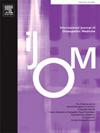整合整骨疗法在葡萄牙国家卫生服务:公民和卫生专业人员的看法和期望
IF 1.5
4区 医学
Q2 MEDICINE, GENERAL & INTERNAL
引用次数: 0
摘要
由于法律地位、医疗系统整合和实施水平等特定环境因素,脊椎病的框架在全球医疗系统中有所不同。随着整骨疗法在葡萄牙的发展,并认识到确定其在国家卫生服务中的作用的重要性,了解葡萄牙背景下公众的看法和期望是至关重要的,即使是为了获得更大的公平。目的探讨公民和卫生保健专业人员对将整骨疗法纳入葡萄牙国家卫生服务的看法和期望。方法本研究采用定性设计。进行了两个焦点小组-公民焦点小组(n = 8)和卫生专业人员焦点小组(n = 6)。公民焦点小组是面对面的,卫生专业人员的焦点小组是在线的。焦点小组文本分析遵循建构主义范式,运用主题分析。结果主题分析得出四个主要主题:整骨疗法概念;主管的后背;关注和期望,以及国家卫生服务的整合。尽管对整骨疗法的范围有不同和有限的看法,但参与者普遍对整骨疗法持积极态度。然而,人们注意到NHS整合的障碍,并提出了改善整骨疗法融入医疗体系的建议。结论本研究强调了参与者对将整骨疗法纳入国民健康服务的积极态度。然而,他们承认,该行业在实现这种整合方面面临着重大挑战。克服这些障碍可能需要循序渐进的方法,其中包括注重有效性的证据、更广泛的传播和建立支持性的报销制度。对实践的启示•研究结果强调了在整骨疗法中确保可靠的培训、实践经验和相关技能的重要性。这些因素是影响个人选择整骨疗法的关键,可以指导从业者与患者建立信任,并有效地定位他们的服务。•解决与诊断能力、技术安全和质量保证相关的问题对于提高整骨治疗的安全性和质量以及减少公众的担忧至关重要。•该研究对将整骨疗法纳入国民健康服务的潜在益处和挑战提供了有价值的见解,为参与这一决策过程的决策者和医疗保健专业人员提供了有用的指导。本文章由计算机程序翻译,如有差异,请以英文原文为准。
Integration of osteopathy in the Portuguese National Health Service: Perceptions and expectations of citizens and health professionals
Background
Osteopathy's framework varies globally in healthcare systems due to context-specific factors like legal status, healthcare system integration, and implementation levels. With osteopathy expanding in Portugal and recognising the importance of defining its role in the National Health Service, it is essential to understand public perceptions and expectations in the Portuguese context even for more significant equity of access.
Objective
Explore citizen and healthcare professionals' perceptions and expectations regarding integrating osteopathy into the Portuguese National Health Service.
Methods
The study used a qualitative design. Two focus groups were conducted—a citizens' focus group (n = 8) and a health professional's focus group (n = 6). Citizens' focus group was in-person, and the health professional's focus group was online. Analysis of focus group transcripts followed a constructivist paradigm utilising thematic analysis.
Results
Thematic analysis resulted in four principal themes: osteopathy concept; competent osteopath; concerns and expectations, and National Health Service integration. Despite diverse and limited perspectives on its scope, participants generally held positive attitudes towards osteopathy. Nevertheless, barriers to NHS integration were noted, along with suggestions for improving osteopathy's integration into the healthcare system.
Conclusion
This study highlights a positive attitude among participants towards the integration of osteopathy into the National Health Service. However, they acknowledge that the profession faces significant challenges in achieving this integration. Overcoming these obstacles may require a gradual approach, which includes focusing on evidence of effectiveness, wider dissemination, and the establishment of supportive reimbursement systems.
Implication for practice
- •The findings highlight the importance of ensuring credible training, practical experience, and relational skills in osteopathy. These factors are key in influencing how individuals choose osteopaths and can guide practitioners in building trust with patients and positioning their services effectively.
- •Addressing concerns related to diagnostic capacity, technique safety, and quality assurance is crucial for improving the safety and quality of osteopathic care, as well as reducing public concerns.
- •The study provides valuable insights into the potential benefits and challenges of integrating osteopathy into the National Health Service, offering useful guidance for policymakers and healthcare professionals involved in this decision-making process.
求助全文
通过发布文献求助,成功后即可免费获取论文全文。
去求助
来源期刊
CiteScore
2.20
自引率
36.80%
发文量
42
审稿时长
3 months
期刊介绍:
The International Journal of Osteopathic Medicine is a peer-reviewed journal that provides for the publication of high quality research articles and review papers that are as broad as the many disciplines that influence and underpin the principles and practice of osteopathic medicine. Particular emphasis is given to basic science research, clinical epidemiology and health social science in relation to osteopathy and neuromusculoskeletal medicine.
The Editorial Board encourages submission of articles based on both quantitative and qualitative research designs. The Editorial Board also aims to provide a forum for discourse and debate on any aspect of osteopathy and neuromusculoskeletal medicine with the aim of critically evaluating existing practices in regard to the diagnosis, treatment and management of patients with neuromusculoskeletal disorders and somatic dysfunction. All manuscripts submitted to the IJOM are subject to a blinded review process. The categories currently available for publication include reports of original research, review papers, commentaries and articles related to clinical practice, including case reports. Further details can be found in the IJOM Instructions for Authors. Manuscripts are accepted for publication with the understanding that no substantial part has been, or will be published elsewhere.

 求助内容:
求助内容: 应助结果提醒方式:
应助结果提醒方式:


